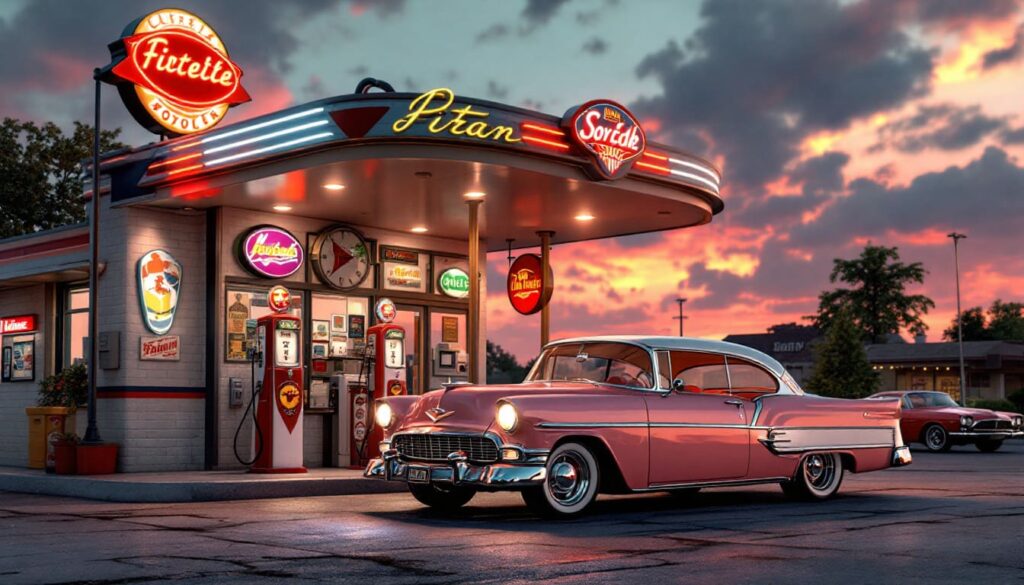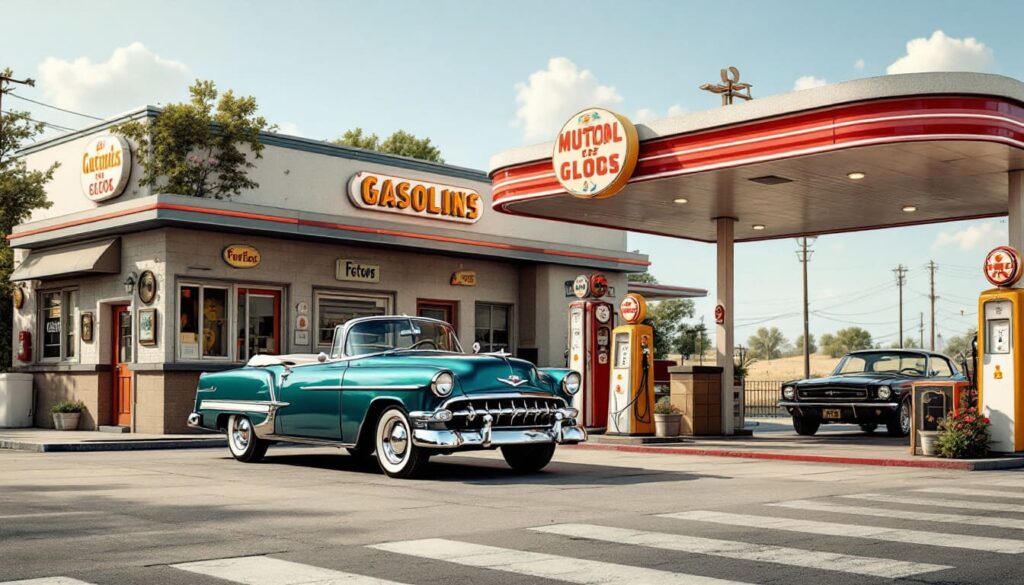Maintaining a classic car takes passion and care, and for many enthusiasts, the switch from leaded to unleaded gasoline raises an important question: Does your vintage engine need a lead substitute? This guide explains the history, necessity, and options for lead substitutes to help you make an informed decision.
Why Was Lead Added to Gasoline?
Tetraethyllead played a critical role in gasoline for decades, contributing to two key functions:
- Boosting Octane to Prevent Engine Knock
Engine knock, or “pinging,” occurs when fuel burns unevenly during combustion. This can damage pistons, reduce power, and impact performance. Lead increased the octane rating, improving resistance to knock and ensuring optimal engine performance. - Protecting Valve Seats
In high-performance, high-heat situations, exhaust valves repeatedly strike valve seats, creating “micro welding.” Over time, this results in valve-seat recession, where the valves no longer close tightly, reducing power and risking engine damage. Lead additives formed a protective barrier, minimizing wear on these components.
What Changed?
By the 1970s, the dangers of lead to human health and the environment became undeniable. The transition to unleaded fuel and catalytic converters began, requiring engineers to design engines differently. Modern engines now feature hardened valve seats, eliminating the need for lead. However, engines in most pre-1970s classic cars still lack this advancement, leaving their owners with a decision—should they use lead substitutes?

cars of the 1960s. Modern lead substitutes ensure these engines remain protected today.
Do Classic Cars Require Lead Substitutes?
Classic cars built without hardened valve seats are more susceptible to valve recession, especially during high-load conditions such as racing or extended high-speed driving. However, not all classic cars need lead substitutes in every scenario. Factors such as how frequently the car is driven and the type of trips (short cruises vs. extended trips) play an essential role.
When Lead Substitutes Are Beneficial:
- Frequent highway driving or sustained high RPMs.
- Engines running higher compression ratios.
- Preservation of untouched, original engine components.
- High-performance engines designed for leaded gasoline.
For occasional, low-stress driving, many engines perform adequately without any additives, especially if unleaded fuel rated at the proper octane is used.
The Top Lead Substitutes Reviewed
To help you select the right product, here is a comparison of three popular lead substitutes:
1. AMSOIL Lead Substitute
- Overview: A high-quality product designed for reliable valve-seat protection under stress. AMSOIL’s formula is trusted for its durability, particularly in performance engines.
- Pros: Performs well in extreme conditions; long-lasting protection.
- Cons: Premium pricing.
- Best Fit: Enthusiasts and racers who demand reliable performance and protection.
2. Lucas Oil Lead Substitute
- Overview: A well-rounded, affordable option for general use and engine preservation. This product is widely available and blends easily with all fuel types.
- Pros: Affordable and easy to find; safe for newer components.
- Cons: Less effective at high RPMs or under racing conditions.
- Best Fit: Ideal for casual drivers or cars used for short trips.
3. Red Line Lead Substitute
- Overview: Focused on high-pressure, high-RPM environments, Red Line offers superior performance for enthusiasts pushing their engines to the limit.
- Pros: Exceptional high-temperature protection; optimized for high-stress applications.
- Cons: Precise mixing required for full effectiveness.
- Best Fit: Racing or heavy-duty applications.
Are Lead Substitutes Safe for Modern Engines?
Yes, most modern lead substitutes are safe for all engines. They don’t harm oxygen sensors, catalytic converters, or other fuel injection systems. While specifically designed for older vehicles, they won’t disrupt modern engines if accidentally used.

lead substitutes now preserves these engines without environmental harm.
Actionable Tips for Using Lead Substitutes
- Follow Manufacturer Guidelines: Always measure accurately to ensure optimal performance.
- Match the Additive to Your Driving Needs: For occasional drives, focus on affordability; for sustained RPMs, invest in premium options.
- Consider Professional Advice: Consult a trusted mechanic or reference your vehicle’s manual for specific recommendations.
Frequently Asked Questions
1. Is a lead substitute necessary for my classic car if I rarely drive it?
If you only take your car out for short cruises or shows, you may not need a substitute. Use higher-octane unleaded fuel to minimize risks.
2. How often should I add a lead substitute?
Typically, add it at each fill-up if your car requires consistent valve-seat protection. Check the product recommendations for precise dosages.
3. Are there eco-friendly lead substitutes available?
Yes, many brands now offer biodegradable formulas, reducing environmental impact while maintaining effective protection.
Final Thoughts: Protecting Your Classic Engine
Using a lead substitute depends on your car’s design, driving habits, and preservation goals. Products like AMSOIL, Lucas Oil, and Red Line are proven options designed to cater to varying needs. Choose the right additive based on your driving style and the demands of your engine.
For classic car owners, maintaining authenticity while ensuring reliability is key. A well-cared-for engine not only keeps your classic car running smoothly but also preserves its legacy for years to come.

Hi Do you ship to Canada or have a representative here?
Alternatively if not, would you ship to a US address and what would be the cost for the lead substitute and shipping and info. to place the order?
Thanks, Loy
Hello Loy. Yes, AMSOIL has warehouses in Canada and can ship products to both the US and Canada. Simply place the order on the AMSOIL website and they will ship the product to you. If you’re interested in DOMINATOR Octane Boost lead substitute, here’s the link: https://www.amsoil.com/p/dominator-octane-boost-aob/?zo=6344107 . Thank you!